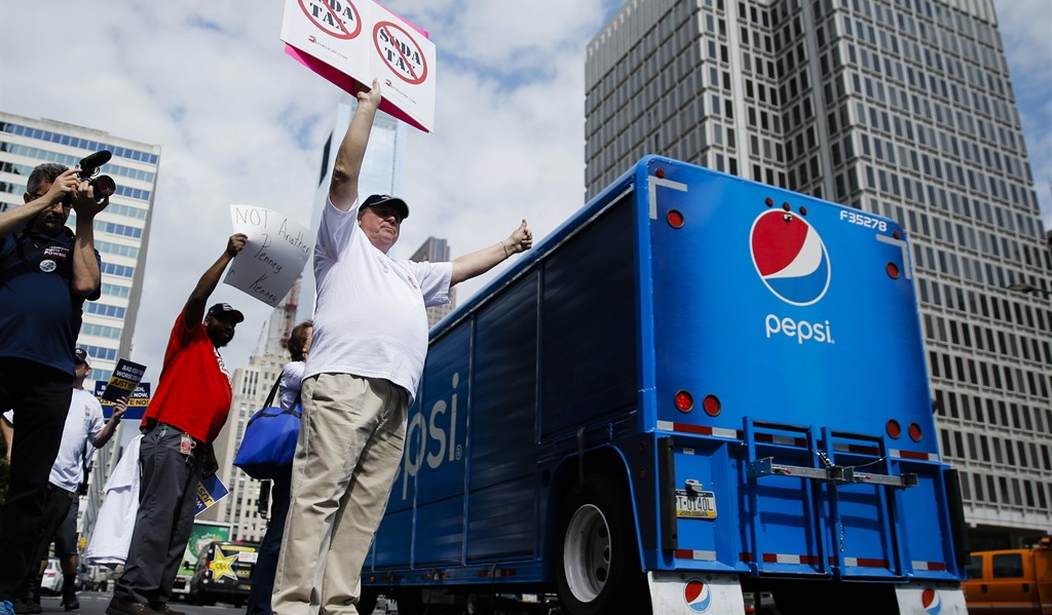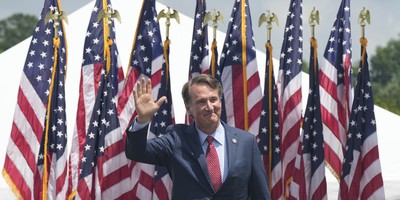In Philadelphia, a 1.5-cents-per-ounce tax on beverages goes into effect January 1, 2017. The regressive, highly unpopular tax will add 18 cents to the cost of a can of soda, $1.08 for a six-pack or $1.02 for a two-liter bottle. The new “soda tax” will be added on top of the already excessive 8% sales tax that applies to beverages in Pennsylvania.
Yes, the tax is unpopular – 58% of residents oppose the measure. Yes, the tax will disproportionately harm poor residents – economic studies show that low-income Americans spend a larger portion of their income on consumer goods like soda. No, the tax revenue—as the mayor promised—is not being reserved exclusively for an expanded pre-K program or city parks and recreational facilities. More than half the tax revenue will be used to plug the city’s deteriorating finances. No, the tax is not legal – experts are calling the tax unconstitutional.
Mayor Jim Kenney (D-Philadelphia) might have persuaded the City Council to support a “soda tax” with back-room deals and eleventh-hour concessions to individual council members. However, such sweet-deals and political horse-trading will be out-of-bounds in the judicial system. What will matter in the end is if the mayor’s legal team can persuade the courts that the grocery tax is legal under Pennsylvania law.
Ronald Castille, former Chief Justice of the Pennsylvania high court, has acknowledged that the “soda tax” is a de facto sales tax and preempted by the state. He wrote in Philly.com that the grocery tax is clearly a sales tax.
Recommended
Many legal experts, including the former Chief Justice, have affirmed that the Philly tax violates Pennsylvania’s state Constitution. Specifically, Article VIII, Section 1 — or the Uniformity clause — which holds:
“All taxes shall be uniform, upon the same class of subjects, within the territorial limits of the authority levying the tax, and shall be collected under general laws.”
Even before the City Council gave final approval to the grocery tax, Justice Castille, wrote in Philly.com that theMayor and Council were pushing an unconstitutional soda tax.
The tax is not only illegal, but it is also an economic disaster in the making.
The Kenney administration's finance director, Rob Dubow, has admitted the city expects stores to close because of lost revenue, and smaller grocery shops, convenience stores, and street vendors will be hit the hardest. The businesses that provide services in low-income communities, hire local residents, and pay a significant amount in taxes. These businesses will fail under the burden of Philly’s regressive, unpopular “soda tax”. When they go out of business, more Philadelphians will be without jobs, neighborhoods without stores, and a city government without a tax base.
It’s happened in other cities, like Baltimore, Maryland.
Walter Olson, a senior fellow at the Cato Institute, writes in Philly.com:
“Consider what happened in Baltimore, which enacted a bottle tax in 2010 (with the excuse, in part, of funding school repairs). Critics, including the National Federation of Independent Business and American Beverage Association, predicted that commerce in the city would be harmed, and that's exactly what happened. Painfully, the landmark 83-year-old Santoni's Supermarket in Highlandtown was among the losses. Owner Rob Santoni said the tax had caused an ‘irreversible’ decline in business as customers fled for suburban stores; beverage sales had slumped 28 percent and customer traffic 20 percent. Eighty workers would lose their jobs. ‘What has taken 83 years to build has been torn down by one person [the mayor] and one bad law,’ he told the Baltimore Sun.
More recently, Walmart closed its only Baltimore location, and local grocery chain Mars announced that it would close all its Baltimore stores.
Can you guess what's happened now? Right: Baltimore this winter offered huge one-off tax breaks to supermarkets willing to locate in the city to help solve what was said to be the public health crisis of ‘food deserts.’”
Philadelphia’s Mayor Kenney and the City Council are determined to see the tax implemented this January, and the Kenney administration will defend the “soda tax” in court. If the mayor wins, the city loses. Philadelphia will be burdened with a grocery tax that hurts the poor, causes businesses to close, and sends jobs fleeing. Philly will have its own, self-inflicted “health crisis of food deserts.” And for what? Not an expanded, universal pre-Kindergarten program, like the mayor promised, but to cover the gaping holes in the city’s ramshackle, bloated budget.
Philadelphia is a great city, and its people deserve better from Mayor Kenney and the City Council. “Let brotherly love endure” and let justice be served in the courts.























Join the conversation as a VIP Member